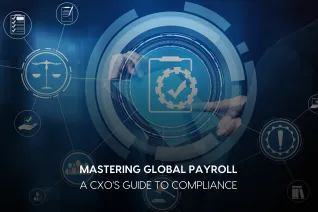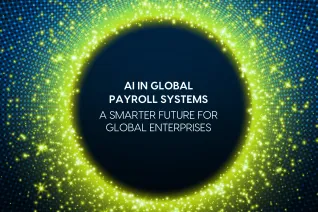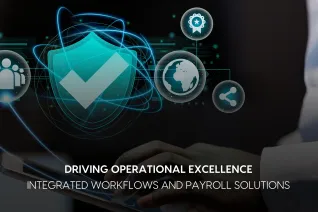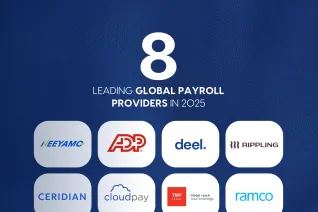Ethical AI in HR: Considerations and Best Practices
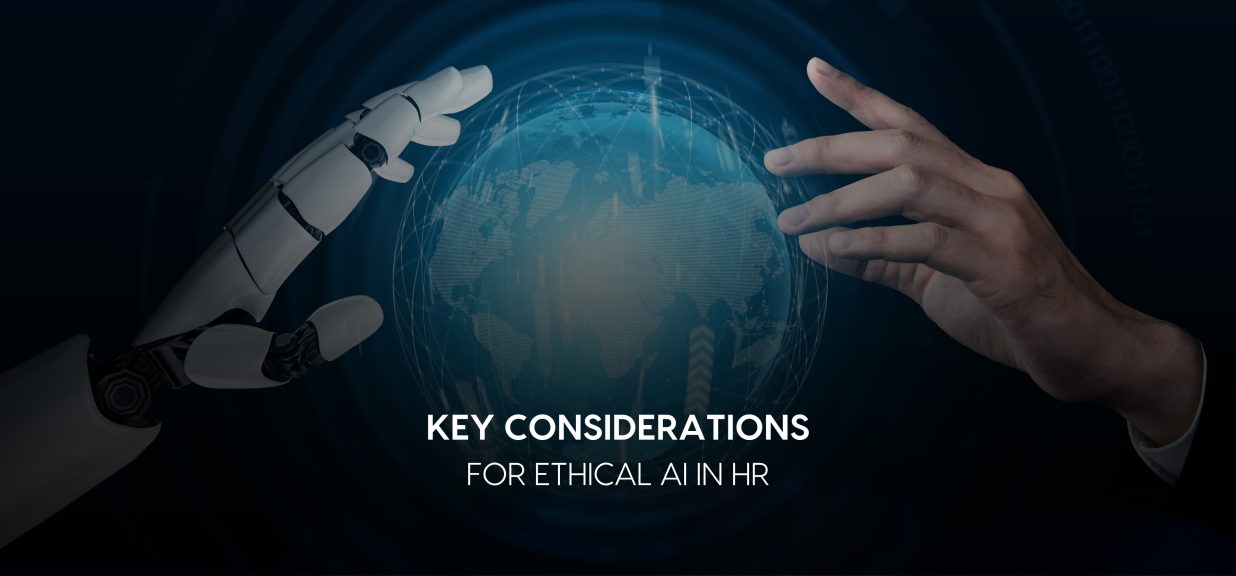
AI has emerged as a revolutionary force, penetrating many industries and transforming the way people work, live, and interact. Its impact extends far beyond science fiction, with real-world applications ranging from healthcare and banking to manufacturing and entertainment. The impact of AI on Human Resources (HR) is one of the most profound and promising of these disciplines. In today's dynamic and competitive global landscape, organizations are increasingly recognizing the critical role that human capital management plays. However, it should be noted that 88% of HR leaders believe that the intention of AI should be to complement unique human capabilities rather than replace human workers entirely, as showcased by a study by SHRM Research.
As the foundation of an organization's success, human resources not only ensures that the appropriate people are in the proper jobs but also fosters an atmosphere in which employees can flourish, develop, and contribute to attaining strategic goals. Given these obligations, human resource professionals continually seek methods to improve their procedures to make them more efficient, equitable, and aligned with business goals.
Key Considerations:
Fairness and Transparency
- Bias Mitigation: AI systems can inadvertently perpetuate biases present in training data. Regularly conduct bias and fairness assessments to identify and mitigate any discriminatory patterns.
Data Privacy and Security
- Data Protection: Ensure that all employee data used by AI systems is securely stored and processed in compliance with data protection regulations.
- Consent and Transparency: Clearly communicate to employees how their data will be used and obtain their consent before collecting or processing their information
Accountability and Governance
- Ethics Committee: Establish an AI ethics committee to oversee the development and deployment of AI systems and ensure they align with ethical standards.
- Regular Audits: Conduct regular audits of AI systems to ensure they are functioning as intended and adhering to ethical guidelines.
Inclusivity and Diversity
- Diverse Development Teams: Assemble diverse AI development teams to bring varied perspectives and reduce the risk of biased outcomes.
- Inclusive Practices: Implement inclusive practices such as blind recruitment to minimize biases in hiring processes.
AI in HR: A new tool for success
While businesses harness analytics and AI to enhance various operations, there's an inquiry regarding its inroads into the human resources (HR) sector. Historically lagging in digital transformation, HR now finds an opportunity to leap forward with AI. This technology promises to streamline repetitive tasks, optimize talent acquisition, curb employee turnover, and elevate engagement levels. The term "people analytics" in HR involves aggregating employee data and analyzing key metrics. In this context, AI can be viewed as a system equipped to learn from and even suggest decisions based on the data ingested.
Imagine HR documents created and personalized in seconds. SenseHR's AI, Ami, does just that, revolutionizing HR and improving efficiency while maintaining accuracy. It excels at generating templates and documents from scratch, incorporating personalization tags that automatically populate employee details.
The last decade has witnessed a technology-driven overhaul in HR, with an emphasis on fostering a workplace culture centered on employees. AI and machine learning (ML), modern technological buzzwords, play pivotal roles in reshaping HR practices. While AI processes and translates data into understandable formats, ML, a sophisticated subset of AI, delves deep into data to discern patterns, adapting its algorithms accordingly.
Businesses increasingly channel investments into AI and cognitive computing to enhance their HR operations. Indeed, HR stands out as the sector with the most intricate data management and analytical demands. Deploying AI can significantly amplify any department's capability to collect, process, and predict trends based on evolving circumstances. Integrating Artificial Intelligence (AI) into Human Resources (HR) processes represents a pivotal transformation in how organizations manage their workforce. AI offers a range of capabilities that can enhance efficiency, accuracy, and strategic decision-making across various HR functions.
The future of HR lies in its evolution into a strategic partner within AI-driven organizations. HR professionals will not merely oversee AI implementations; they will leverage AI insights to make data-informed strategic decisions. The reskilling and upskilling of HR teams will be essential to maximize the benefits of AI while ensuring ethical practices. Artificial Intelligence (AI) is a transformative force for HR functions, amplifying their efficacy and impact. Such AI-driven software not only bolsters the performance of HR but also allows professionals to pivot toward tasks of strategic significance to the organization.
Latest Resources
Stay informed with latest updates
If you're curious and have a thirst for knowledge pertaining to the HR, payroll, and EOR universe, don't miss out on subscribing to our resources.






